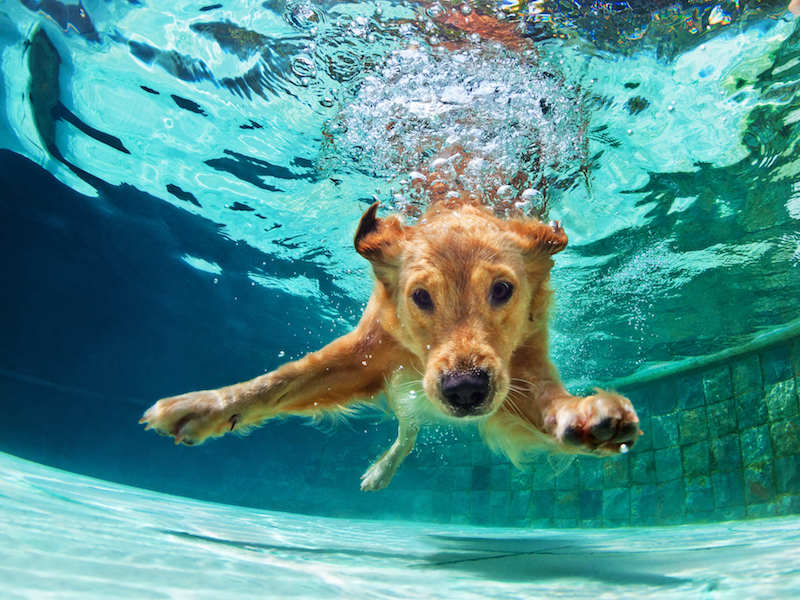
There are a lot of different things that can harm the delicate that makes a hearing aid function the way it does, but not many have the impact of water. Hearing aids seem to self-destruct under extreme moisture conditions. Even if you already know that and take care to protect your investment from the shower, pool, or a good face washing, more than likely you are missing the most common reason for water damage in hearing aids: humidity.
Moisture that you can’t see has the greatest chance of causing irreparable damage. It’s essential to educate yourself about why humidity harms hearing aids.
Let’s Talk About Humidity
Even though the word humidity is very common, what does it really mean? PBS describes humidity as water molecules in the air. When displayed as a percentage, for example, the relative humidity is 40 percent today, it refers to the amount of water vapor in the air compared to what air could hold. When you can feel wetness in the air, that means the relative humidity is high.
Humans cool their body by sweating so that makes us very sensitive to humidity. When you sweat it evaporates into the air, but that doesn’t happen as quickly when the humidity level is high. Electronics are also susceptible to humidity and that is why it has such a detrimental effect on hearing aids.
As A General Rule Electronic Devices Have a Hard Time Coping With Humid Weather
Too high or, too low, humidity can influence your hearing aids. When it’s too moist, the intricate electronics will accumulate condensation. When it’s overly dry things become more brittle.
Internal electronics are the reason your hearing aids work. An advanced signal processing chip manages noise levels in a modern hearing aid. Because of this, you get amazing features like:
- Noise reduction
- Anti-feedback
- Targeted listening programs
- Digital sound streaming
High humidity causes moisture to collect in the hearing aids damaging that chip. Batteries get wrecked and you get corrosion of elements inside of the case. You might as well throw your hearing aid in a pool full of water, and the effect is the same.
How to Manage Humidity
If you are looking at hearing aids, try to look for products that are water-resistant. This feature will give you some protection from humidity and wet weather, but you still can’t swim with them in.
When it’s very humid try to cut down on indoor water vapor by utilizing a dehumidifier. It’s an investment that will help you and your family in numerous ways and protect other electronic devices like that costly TV you got for Christmas. Dehumidifiers reduce the risk of mold, mildew and dust mites, so everyone breathes a little better, too. However, protecting your hearing aid more completely will require additional thinking. There are a few other things you can and should do.
Consider buying a dehumidifier designed especially for hearing aids. They come at all costs levels. Drying kits rely on silica gel crystals to protect the electronics. You put the device in the dehumidifier for a couple of hours to eliminate moisture. There are also storage containers that dry hearing aids out each night as you sleep. If it is very humid and you have no other way, uncooked rice can reduce moisture.
Don’t forget to leave the battery door open when you store your device. When you expose the battery and inner elements to air by leaving the door open, condensation can evaporate by itself. Don’t just do this in the summer, do it all year round.
A cool dry place is the ideal for storage. Avoid putting them in the glove compartment, in a hot room or on a table in the sun.
Thinking Beyond Humidity
Air vapor is not the only moisture that can damage hearing aids. Don’t forget to think about other types of wetness like:
- Make sure all lotion or sunscreen is fully absorbed before touching your hearing aids or putting them in your ears.
- Find a safe place to store your hearing aids if headed for the pool or beach.
- When exercising wear a sweatband. It’s a good practice whether you wear your hearing aids when you workout or not. Later that sweat will cause problems.
- Try not to put your hearing aid down on wet surfaces. A glass or coffee cup can leave moisture behind.
Your hearing aids are a valuable asset, so treat them that way. Consider how moisture and humidity can impact them and take steps to prevent water damage. If your hearing aid already has water damage make an appointment for service with a hearing aid specialist.
